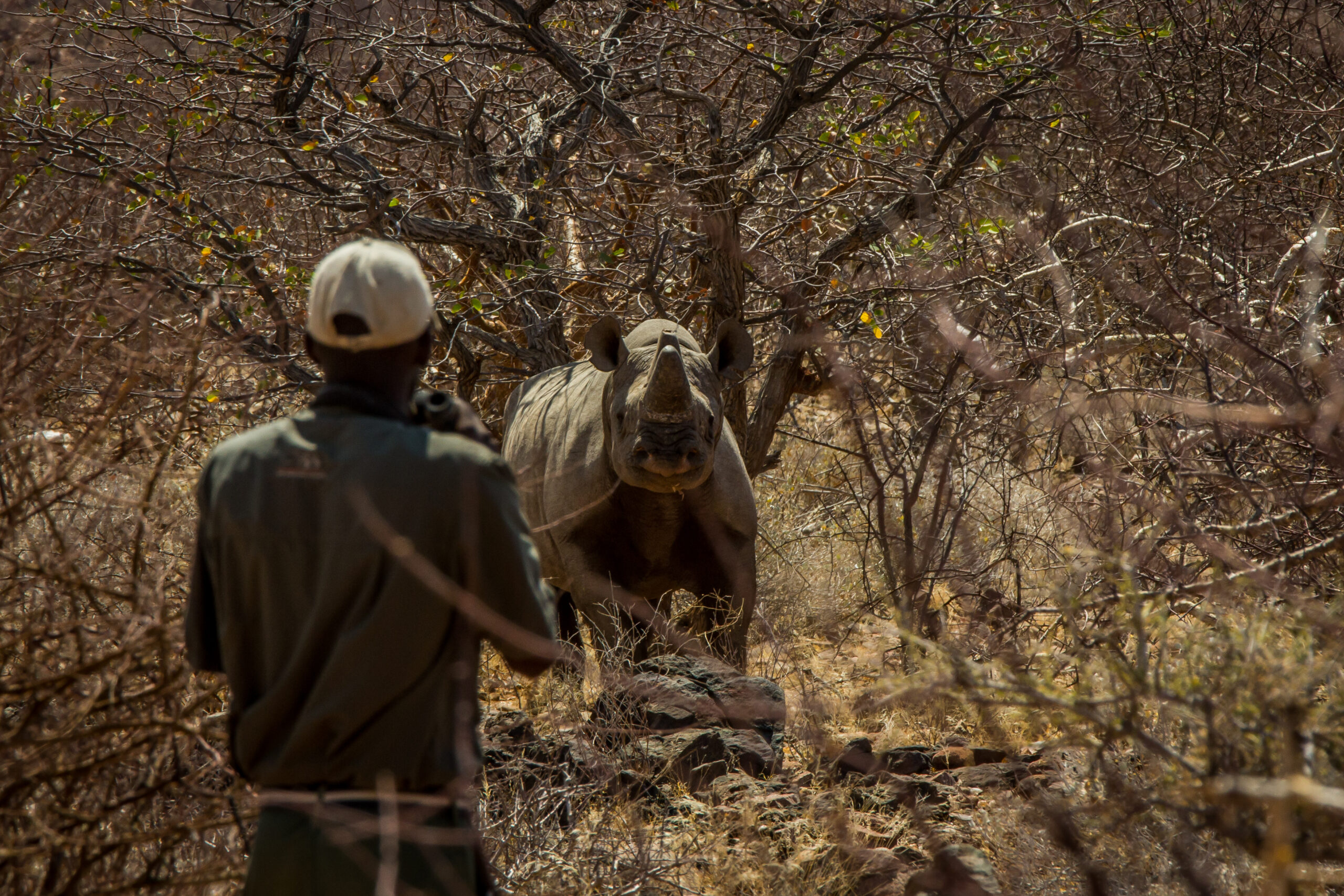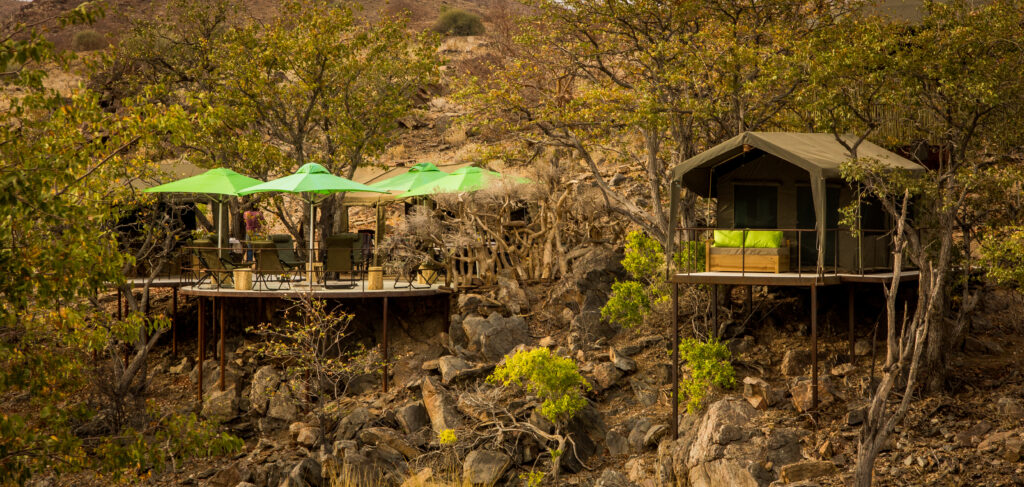
By Vitalio Angula
The year Twenty Twenty-Three (2023) marks the 50th anniversary of the United Nations Convention on International Trade in Endangered Species, Wildlife and Flora (CITES).
On the 3rd of March, the United Nations (UN) observed World Wildlife Day under the theme: Partnerships for Wildlife Conservation.

In a statement to mark the occasion, UN Secretary General Antonio Gutteres noted, “On World Wildlife Day, we reflect on our responsibility to protect the magnificent diversity of life on our planet and we recognise our abject failure”.
He further stated, “Human activities are laying waste to once thriving forests, jungles, farmland, oceans, rivers, seas and lakes”.
Namibia, a semi-desert arid country in the South West of Africa, is home to the desert adapted black rhino – a gigantic browser that is critically endangered!
Its horn is sought after in Asian markets, where it is used for medicinal purposes and ornaments made from its prized horn.
Although no scientific evidence exists that rhino horn contains medicinal properties, the belief that it does is said to have a placebo effect on those who consume it.
This drives the demand for rhino horn by syndicate poachers who hunt these magnificent beasts for their horn that costs on average U$ 58 800 per kilogram.
Namibia has the world’s largest population of free-roaming Black Rhino, numbering just close to two-thousand (2000). There are a mere 6, 000 Black Rhinos left in the world!
Recognising the need to protect these species from extinction, Namibian authorities, under the auspices of the Ministry of Environment, Tourism and Forestry, introduced the Black Rhino Custodian Program.
The program placed the endangered species onto community based conservancies, custodian farms and national parks!
Under Namibian law, all Black Rhino are property of the state, the trade, trophy hunting and selling of their horn are not allowed in line with CITES.
The introduction of Black Rhino at conservancies around the country has had the positive impact of sustainable use of wildlife resources whereby inhabitants on conservancies benefit financially from the presence of rhinos.
Rhinos are protected because the population who reside in these areas benefit from their presence in terms of income generated from tourism activities.
One such conservancy is the //Huab Conservancy in North-West Namibia.
The //Huab Conservancy

The //Huab Conservancy covers 1817 square kilometers and has a population of about 1500 inhabitants. The conservancy has a diverse portfolio of wildlife that includes elephant, leopard, mountain zebra, kudu, duiker, warthog, steenbok, ostrich, gemsbok and springbok.
In 2008, black rhinos were introduced to the conservancy for the benefit of the inhabitants and for their protection.
Black Rhinos are a tourist attraction, and in 2016, the conservancy entered into a joint venture agreement with Ultimate Safari’s (a private tour operator) for the building of a light footprint tourist tented camp to offer rhino tourism opportunities.
This camp has since been closed down after the Ministry of Environment, Forestry and Tourism (MEFT) approved an Environmental Clearance Certificate to a copper mining outfit ran by a local in partnership with Chinese businessmen.
According to Ultimate Safari’s Managing Director, Tristan Cowley, the Tourist camp was a big contributor to jobs in the area.
“We employed out of the community and made cash payments to the conservancy through the camp,” Cowley explained.
“There were also fringe benefits in the sale of arts and crafts, and inputs for the camp such as firewood,” Cowley explained further.
He said “when communities operate with responsible operators they have tracts of land that are looked after with the help of the operators.
“It is not just important for tourism, but it is crucially important for conservation, as tourism activities in those areas support conservation through guest levies; a big part of the tourism industry has got product and operations on conservancies which is a big, big livelihood contributor for rural communities”, Crowley explained.
He said since 2016 there were other mining interests who tried to get environmental clearance but did not succeed because of the presence of rhinos, but now, environmental clearance has been issued in the same area and the presence of rhinos was not a deterring factor in the ministry’s decision this time around.
“The argument the ministry used to not issue environmental clearance then is still valid today”, Cowley emphasised.
Conflict of interest
At the center of the storm is David Aiyambo, a Senior Forester at the Forestry Division at the Directorate of Environmental Affairs within the Ministry of Environment, Tourism and Forestry.
Aiyambo also moonlights as an environmental consultant for Healthy Earth Environmental Consultants, the same environmental consultancy firm which did the Environmental Impact Assessment (EIA) on behalf of Gerhardt Kariseb the owner of the Rare Metals on Mining Claims no. 71081, 71082, 71083, 71436, 71437, 71438 and 71439 at Farm No.504, Mesopotamia, Mesopotamia Village, Khorixas District, Kunene region, in North-West Namibia.
Aiyambo paid consultancy work for the same ministry he works for which is a conflict of interest in terms of the public service staff rules which governs the conduct of employees in the public service.
In a telephone conversation with this reporter, David Aiyambo said although he is the same David Aiyambo who works for both the Ministry and Healthy Earth Environmental Consultants, he does not recall doing consultancy work on the EIA for copper mining for MEFT.
Further, he could not recall when he started working at MEFT but said his appointment is recent and not at the time he worked for Healthy Earth.
“I used to work for them (Healthy Earth Environmental Consultants) but I do not work for them anymore”, he said.
Government ministry officials conducting business outside of government is regulated by the Public Service Commission (PSC) under the auspices of the Office of the Prime Minister.
Public service employees are not allowed to do paid work (consultancy) for the same government they work for without written permission and approval from the PSC, let alone do paid work for the same ministry that employs them.
Ministry disregards advice from its own officials
Deputy Director of Scientific Services at MEFT, Kenneth Uiseb, advised the Environmental Commissioner, Timoteus Mufeti not to grant environmental clearance to the mining outfit because the EIA report submitted by Healthy Earth Environmental Consultants “did not provide the necessary information required to make an informed decision”.
Uiseb also found that, “stakeholder concerns were not adequately addressed and that most stakeholders were not notified well enough in time to attend the meeting and some of the written comments they had sent such as the submission made by the Save the Rhino Trust in relation to the impact on the black rhino in the area were also not addressed in the EIA”.
Environmental Commissioner, Timoteus Mufeti did not heed this advice and granted environmental clearance anyway stating that, “the recommendation from Mr. Uiseb not to grant the ECC was not considered since the potential negative impact highlighted in his comments were deemed manageable through appropriate mitigation measures proposed in the Environmental Management Plan”.
It is not clear what those mitigation measures are with regard to the rhinos that are extremely sensitive to the noise, dust and vibration that occur as a result of the mining.
When asked whether he is aware of the job losses and negative impact mining activities could have on the rhinos in the conservancy Mufeti said he would need more time to look into the “allegations” before he could respond.
This is despite the fact that he was asked a question and no “allegations” were made.
He further said, “If the approved environmental plans are implemented correctly, the mining activities as prescribed for the EIZ and EMP should not increase the poaching incidents in the area”.
An assertion Chief Executive Officer at the Save the Rhino Trust, Simson Uri-Khob vehemently disagrees with.
In an affidavit for an appeal hearing relating to the issuing of the ECC in favour of Gerhardt Kariseb for mining activities, Emma Gomes, Chairperson of the //Huab Conservancy, argues that mining activities in such close proximity to a sensitive rhino area are a major threat to the safety of the black rhino of the area.
The //Huab conservancy has not had any incidents of rhino poaching over the past 19 months unlike the game parks and private farms that have faced a significant increase in incidents of rhino poaching since the lifting of Covid lockdown restriction with a total of 87 rhinos poached in 2022 almost double the number poached in 2021.
Conclusion
Allowing copper mining activities in the //Huab Conservancy raises the fundamental question on the competing interests of community based natural resource management, the conservation of wildlife habitats, and key wildlife species such as black rhino, and the socio-economic development of rural communities living with wildlife on the one-hand and the interests of the non-renewable, exhaustive, polluting and subject to fluctuations in prices on international markets copper mining industry on the other hand.
Copper is a sought after commodity on the global market however, its demand constantly fluctuates and prices are dependent on external factors such as the U$ Dollar/NAD exchange rate making it an unpredictable short term investment.
Mining companies globally have a reputation for not rehabilitating mines once they close down thereby making the environment inhospitable to humans and wildlife once they leave.
Namibia was the first African country to incorporate protection of the environment into its constitution and gave people living in communal areas the opportunity to manage their natural resources through the creation of communal conservancies.
It would seem that the Ministry of Environment, Forestry and Tourism is not in alignment with the country’s constitution.
Chapter 11, Article 94 (1) of the Namibian constitution stipulates that the state shall actively promote and maintain the welfare of the people by adopting policies that are aimed at the maintenance of ecosystems, essential ecological processes and biological diversity of Namibia and these policies should strive for the utilization of living natural resources on a sustainable basis for the benefit of all Namibians, both present and future.
The question then arises that if the present Namibians living in the //Huab Conservancies have their source of livelihood removed from them for the benefit of Chinese copper interests what will be left for future generations once the Chinese extract their copper and leave?
Vitalio Angula is a Namibian-based freelance journalist angulavita2021@gmail.com









